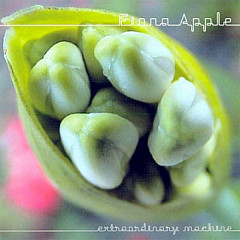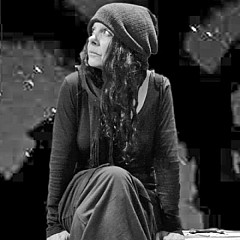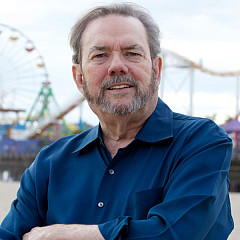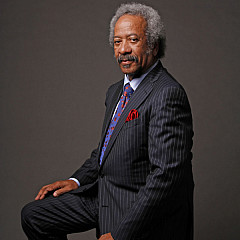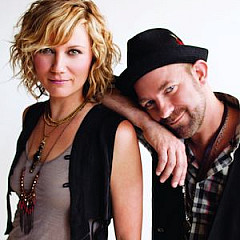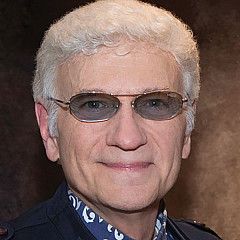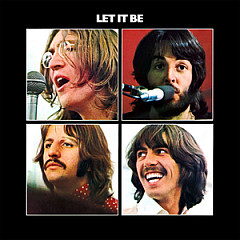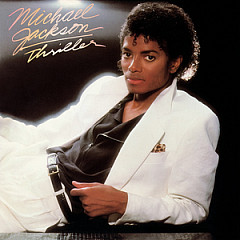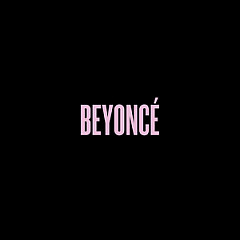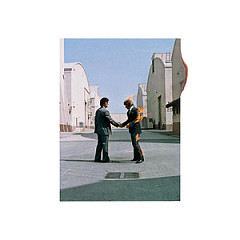 "Genius of Love"
"Genius of Love"Artist: The Tom Tom Club
Writers: Chris Frantz and Tina Weymouth
Album: The Tom Tom Club
Year: 1981
Chart Position: #31 US
 Chris Frantz, drummer for Talking Heads, wants you to know one thing. "A lot of people thought David Byrne was the goose that laid the golden egg. It wasn't really like that. He was the egg, but he was not the goose." The goose was Talking Heads. He clarifies, "We always thought Talking Heads was the mother ship and Tom Tom Club and anything else we did was just a spinoff of that."
Chris Frantz, drummer for Talking Heads, wants you to know one thing. "A lot of people thought David Byrne was the goose that laid the golden egg. It wasn't really like that. He was the egg, but he was not the goose." The goose was Talking Heads. He clarifies, "We always thought Talking Heads was the mother ship and Tom Tom Club and anything else we did was just a spinoff of that."Tom Tom Club was a side project he and his wife, bassist Tina Weymouth, came up with during an indefinite early hiatus, when lead singer David Byrne got a gig scoring the Twyla Tharp dance project, The Catherine Wheel. At first Chris and Tina weren't interested in having a side project, even when the fourth member of the group, guitarist and keyboard player Jerry Harrison, announced he was doing a solo album. It was actually their accountant who convinced them. He said, 'Yes, you're doing well, but you just did this big tour of the world with an eight piece band and you've only got about $2,000 in the bank. So you'd better do something.'
"Tina and I looked at each other. Neither of us were singers, at least at that time, and we thought, 'What kind of solo album could we do?'"
Taking advantage of the early '80s hip hop/dance era, they concocted the Tom Tom Club, whose first album The Tom Tom Club, produced the massive club hits, "Wordy Rappinghood" and "Genius of Love," propelling it to instant success.
How much success? "Well, let me tell you this story," says Frantz. "When the first Tom Tom Club album was raging, we were riding in a cab from 57th Street downtown to Irving Plaza. In the car was Tina, myself, our manager, and David Byrne. I wish our manager had waited until David wasn't in the cab with us. But he said, 'Hey, guess what? The Tom Tom Club album went gold today.' Tina and I were like, 'Oh, that's great.' But David was just sitting there, not making any comment. Talking Heads had not had any gold albums in the United States to that point. I think we had one in New Zealand, of all places. So "Genius of Love" is right up there, in terms of sales, with the best of the Talking Heads."
Our manager was good friends with Chris Blackwell of Island Records. We already knew Chris because he'd passed on Talking Heads. In fairness to him, he said, "I'm putting all of my power into breaking Bob Marley in America." Anyway, our manager said to Chris, how about if Chris and Tina come down to Compass Point and make a record down there. Being keen on reggae, he understood the power of a good rhythm section. So he said, "Sure, send them down and they can record a single. And if I like the single, then they can do a whole album." The first song we recorded was called "Wordy Rappinghood." We recorded it and mixed it in three days. Chris Blackwell came into the studio and said, "I love it. Get started on a whole record. And in the meantime, I'm going to release this as a single in Europe and Latin America." It did really well. In quite a few countries it went to #1. So we got to work on an album.
We worked with one of the house engineers at Compass Point, Steven Stanley. At that time, he wasn't getting a lot of work, but Tina and I liked him, and we thought, "We can work with this kid." We had worked with him a little bit on Remain in Light when the first engineer, Rhett Davis, a very famous British engineer who came down with our producer, Brian Eno, got mad at Eno and left after three days. So we had Steven come in as sort of an interim engineer while this other guy got himself together to come down. Stevie had recorded all the tracks for "Once in a Lifetime," so we knew he was a good engineer. And he became coproducer with us. We mentioned to him that we liked Lee Perry. Stevie was totally into that sound, except he was much more precise and had a more international outlook. Like, Stevie wasn't just thinking about what would be hot in Jamaica, he was thinking about the whole world.
 "Genius of Love" was the second song we started. We didn't finish it until a couple of weeks later. I had the idea for the title and Tina wrote the rest of the lyrics and the melody, except for the last line. I wrote:
"Genius of Love" was the second song we started. We didn't finish it until a couple of weeks later. I had the idea for the title and Tina wrote the rest of the lyrics and the melody, except for the last line. I wrote:He's a genius of love
He's got a greater depth of feeling
Yes, he's the genius of love
He's so deep
We wrote all the songs for the album in the studio. We had learned to write that way on Remain in Light. It's a good way of coming up with surprise things. If you just sit down with a piano and a vocal and you make a demo, chances are it's going to sound like something that came before. Same with a singer/songwriter with a guitar: chances are it's not going to be a real surprise to your ear. But if you go in with no preconceived ideas, or maybe a slightly preconceived idea, but not a fully formulated idea, then it can just go anywhere.
In the studio I'd play the drum part. It's played by hand, but it's a loop part. It doesn't have any fills or anything, but it does have some tom-toms, so I would record a groove with bass drums, snare, and hi-hat. Then Tina would put down her bass. Then I would add a little tom-tom here and there. And then we added the keyboard part, which was actually two keyboard parts combined. Then Tina worked out the vocals with her two sisters, Laura and Lani, and a little bit of screaming by myself. Then we added Adrian Belew on guitar. We also had a Bahamian guitarist named Monty Brown playing a simple rhythm part. He had recently left T-Connection, a Bahamian funk band that had had a few hits.
I would say it probably took two 16-hour days to complete, but once we had the bass and drums, we already knew we had a hit. Usually, you wouldn't say, "This is a hit," because you don't want to jinx it, but I think everybody in the room knew it.
It was the next single in Europe but it didn't really happen there. It was a hit in the dance clubs but it was not a commercial radio hit. But before the album came out Island pressed 100,000 12" singles and exported them to the US. We were signed to Island only for the UK, Europe, and parts of Latin America. Actually, we didn't make the deal in the US until one day after Island had sold 100,000 import singles in the United States. Seymour Stein at Sire, bless his heart, woke up that morning and said, "Whoa! I'd better get on this." And he then offered us a deal. But originally he wasn't interested.
The song came out in '81. So the checks started rolling in as early as '82, continuing through '83. And then there might have been a little dry spell. But the song still sounds fresh even today. It still gets used in movies and on certain TV commercials. Recently, it was in Anchorman 2 and The Wolf of Wall Street at the same time. But it was a pity that we didn't have time, after the initial thing, to really take Tom Tom Club seriously until after Talking Heads was over. Because with Talking Heads we were touring a lot and when we weren't doing that we were working on new records. We did do several Tom Tom Club records after that, but they were all kind of squeezed into a certain period of time.
The only comment David ever made was when we went to see the premiere of The Catherine Wheel. Tina and I sat with him in the VIP section with Baryshnikov and all these dance people, and afterwards there was a party at Studio 54. So we went to Studio 54 and what should be playing when we walked in but "Genius of Love"? It sounded so good and you could tell everybody in Studio 54 was really getting off on it. David leaned over and he said, 'How did you get that hand clap sound?'
That was the only thing he ever said about the record.
August 8, 2014
More They're Playing My Song

